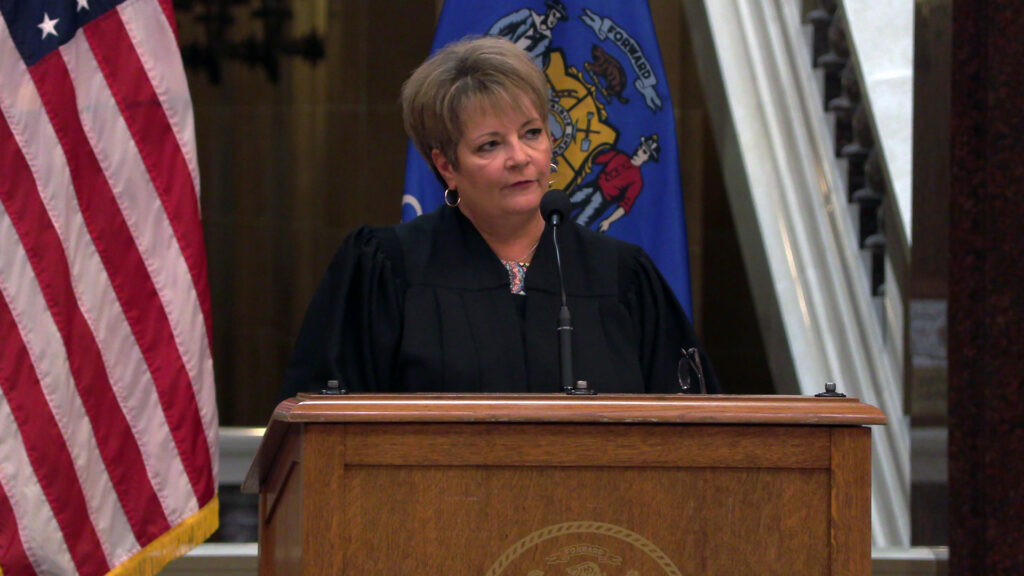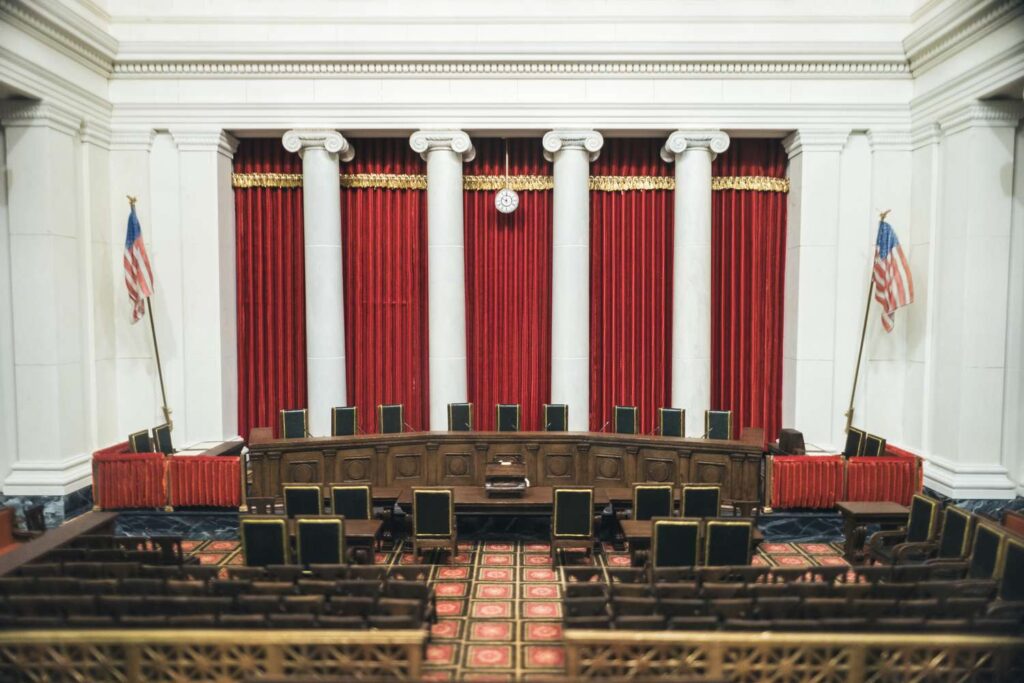Newsmatro

In an unprecedented move, Wisconsin’s Republican-controlled Legislature is considering the impeachment of Justice Janet Protasiewicz, a recently elected liberal state Supreme Court justice, even before she has presided over a case.
This controversial impeachment attempt is unfolding as the court is facing a crucial decision regarding the fate of legislative electoral maps drawn by the Republican-controlled Legislature in 2011. These maps solidified the party’s majorities, currently at 65-34 in the Assembly and a 22-11 supermajority in the Senate.
Here is a closer look at the current situation:
Background: Janet Protasiewicz won her election in April, securing a 10-year term on the Wisconsin Supreme Court starting August 1. Her 11-point victory marked a significant shift, ending a 15-year conservative control of the court, giving liberals a 4-3 majority.
Impeachment Talk: Republican lawmakers, notably Assembly Speaker Robin Vos, have floated the possibility of impeachment. They claim that Protasiewicz has already formed opinions on redistricting cases pending before the Supreme Court based on comments she made during her campaign. Additionally, they argue that her acceptance of nearly $10 million from the Wisconsin Democratic Party disqualifies her.
The state Democratic Party, although not directly involved in the redistricting lawsuits, supports the efforts to challenge the maps.
Pending Cases: Two lawsuits were filed by Democratic-leaning groups and law firms during Protasiewicz’s first week in office, seeking to overturn the Republican-drawn legislative maps.
Protasiewicz’s Remarks: During her campaign, Protasiewicz frequently criticized the current Republican-friendly maps as “unfair” and “rigged.” While she expressed strong opinions about the maps, she never explicitly promised to rule one way or another on redistricting cases.
Recusal and Impeachment Rules: The U.S. Constitution’s due process clause requires judges to recuse themselves if they have a financial interest in a case or if there’s a strong possibility of bias. State rules also dictate when judges must step aside, including instances where their impartiality could be questioned due to personal bias or prior statements as candidates.

Historical Context: In the history of Wisconsin, only one state judge faced impeachment, which occurred in 1853. The impeachment was related to allegations of accepting bribes and hearing cases in which he had a financial interest. The state Senate did not convict.
Impeachment Process: Impeachment in Wisconsin requires a majority vote in the Assembly to impeach and a two-thirds majority (22 votes) in the Senate to convict. Republicans hold sufficient votes in both chambers to impeach and convict Protasiewicz.
If the Assembly proceeds with impeachment, Protasiewicz would be barred from performing her duties as a justice until the Senate takes action. This could effectively prevent her from participating in the redistricting case without removing her from office, which would lead to a vacancy that Democratic Governor Tony Evers could fill.
Assembly Speaker Robin Vos has not committed to initiating impeachment, stating that he is still researching the matter.
Timeline Uncertainty: The court has no deadline for deciding whether it will hear the redistricting challenges, and Protasiewicz has no deadline for announcing whether she will recuse herself. The timing of these decisions remains uncertain.
If the court decides to take up the redistricting cases, it would set a schedule for arguments. The timeline for potential impeachment proceedings, if Protasiewicz remains on the case, is currently unclear.